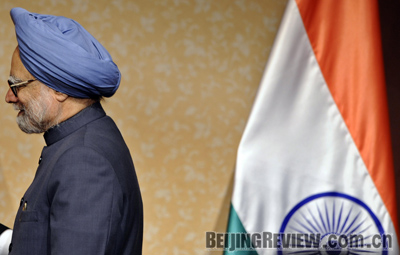|
|
CON
Critics fear the NSG's decision sends the message that multiple standards exist in the fight against nuclear proliferation, and that political, economic and strategic circumstances override proliferation concerns.
PRO
Supporters of the NSG's decision argue that the policy change will keep nuclear technology and materials off the black market, ultimately making the world a safer place. |
After a long and tiring debate, the 45-nation Nuclear Suppliers Group (NSG), which controls the export and sale of nuclear technology worldwide, approved on September 6 an American proposal to lift its nuclear trade embargo on India. Under a deal signed by the United States and India in March 2006, India will get access to U.S. civilian nuclear technology on the condition that India separate nuclear facilities for civilian and military use and open its nuclear facilities for inspection.
On August 1, the International Atomic Energy Agency (IAEA) approved a nuclear safeguards agreement with India, a move seen as giving consent to U.S.-India nuclear cooperation. The decision by the NSG officially gave a green light to cooperation between the United States and India in the civilian nuclear field.
Mutual benefit
The agreement would bring potential economic and strategic benefit to both India and the United States. U.S. Secretary of State Condoleezza Rice said, "Both sides have determined that it is worth it." With its economy still in a downturn, the United States is eager to do business with India, an emerging economic power. Washington says the fuel and technology deal would forge a strategic partnership with "the world's largest democracy," help India meet rising energy demand in an environmentally sound way and open a nuclear energy market worth billions of dollars. Commenting on the deal with India, Rice told the U.S.-India Business Council that "Wrapping up this agreement will open new doors of cooperation for us in the nuclear field." It would open even more doors in business, science, agriculture and development-and perhaps most importantly, strengthen international security. Furthermore, it will strengthen the U.S.-India alliance formed after the end of the Cold War, she said.

UNWAVERING: Indian Prime Minister Manmohan Singh leaves a press conference at the G8
summit in Hokkaido, Japan, on July 8. Singh said India's political stability
would not be affected by left-wing parties' withdrawal from the coalition
government over the nuclear accord between India and the United States
India is equally eager to have the agreement approved, but for reasons more strategic than economic. The NSG's decision is a diplomatic victory for India as it is a tacit acceptance of India's absence from the Nuclear Non-Proliferation Treaty (NPT) and a declaration of
|
